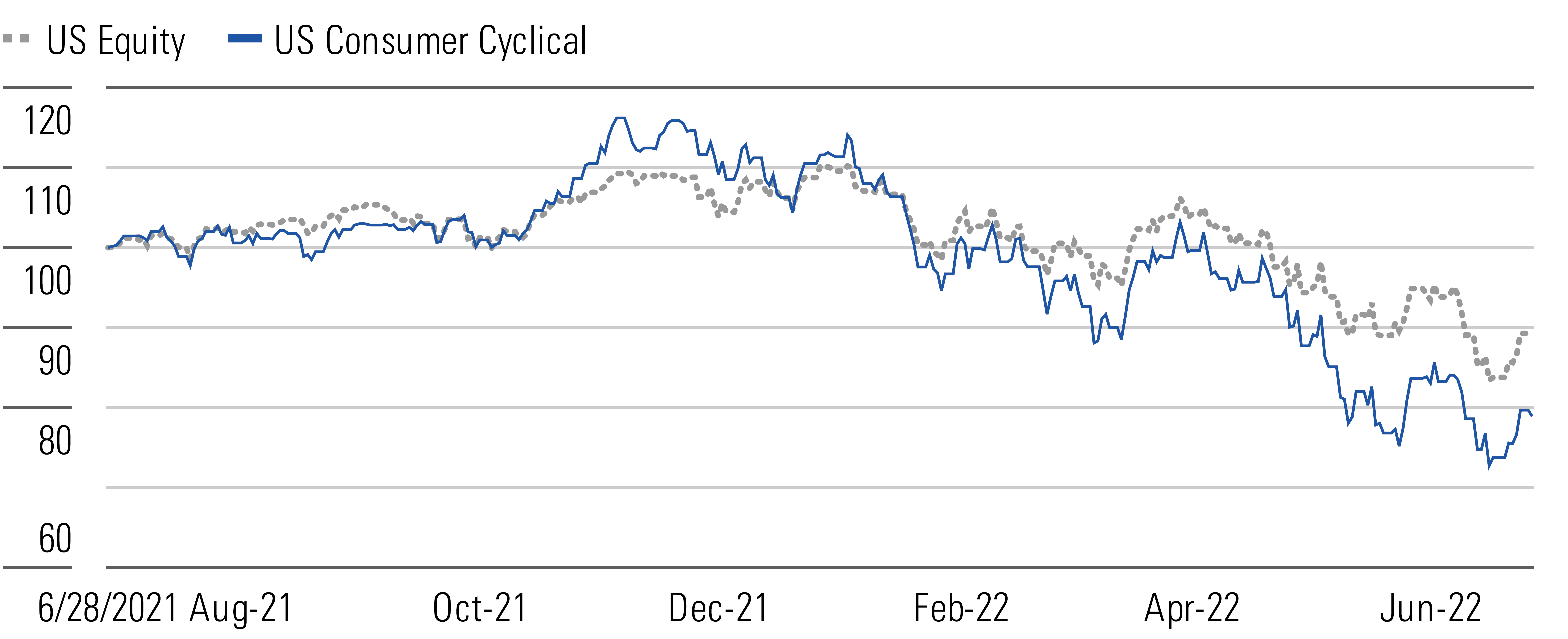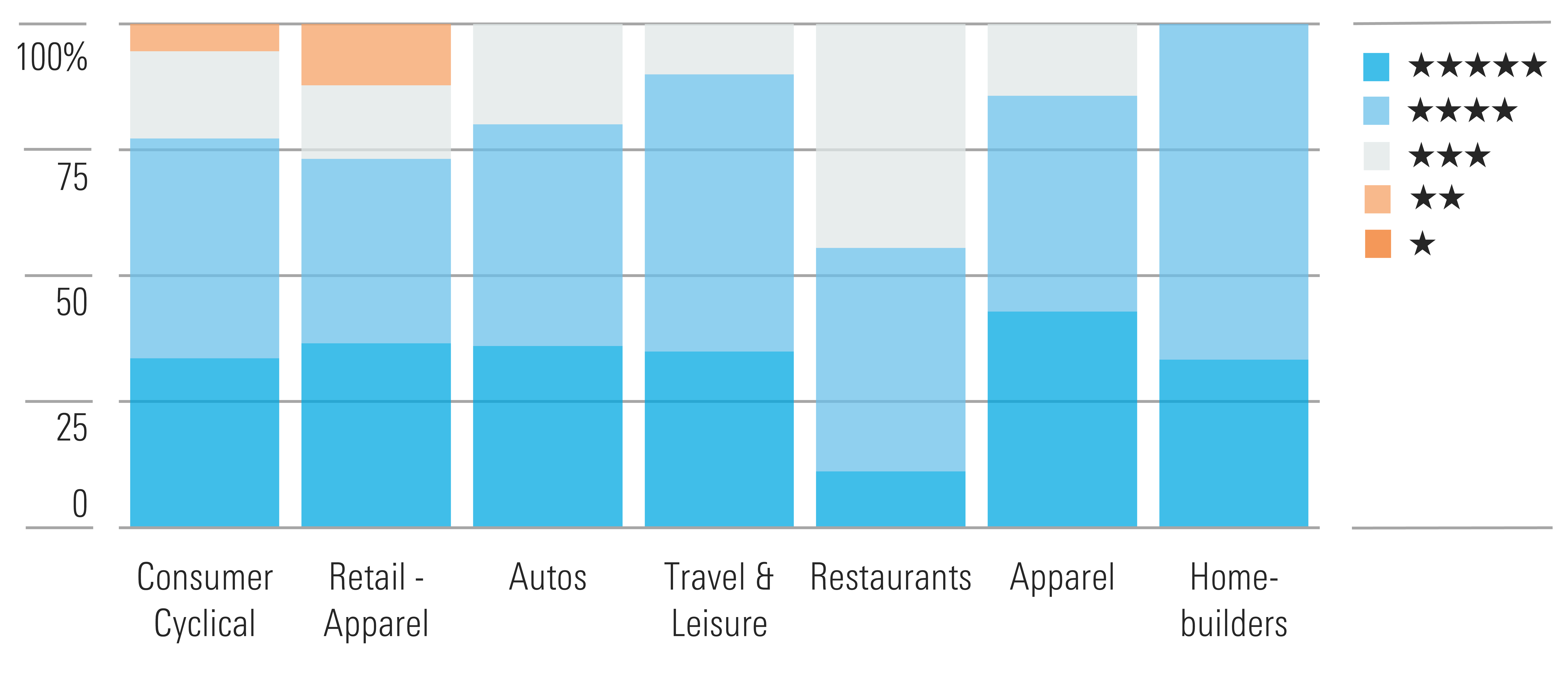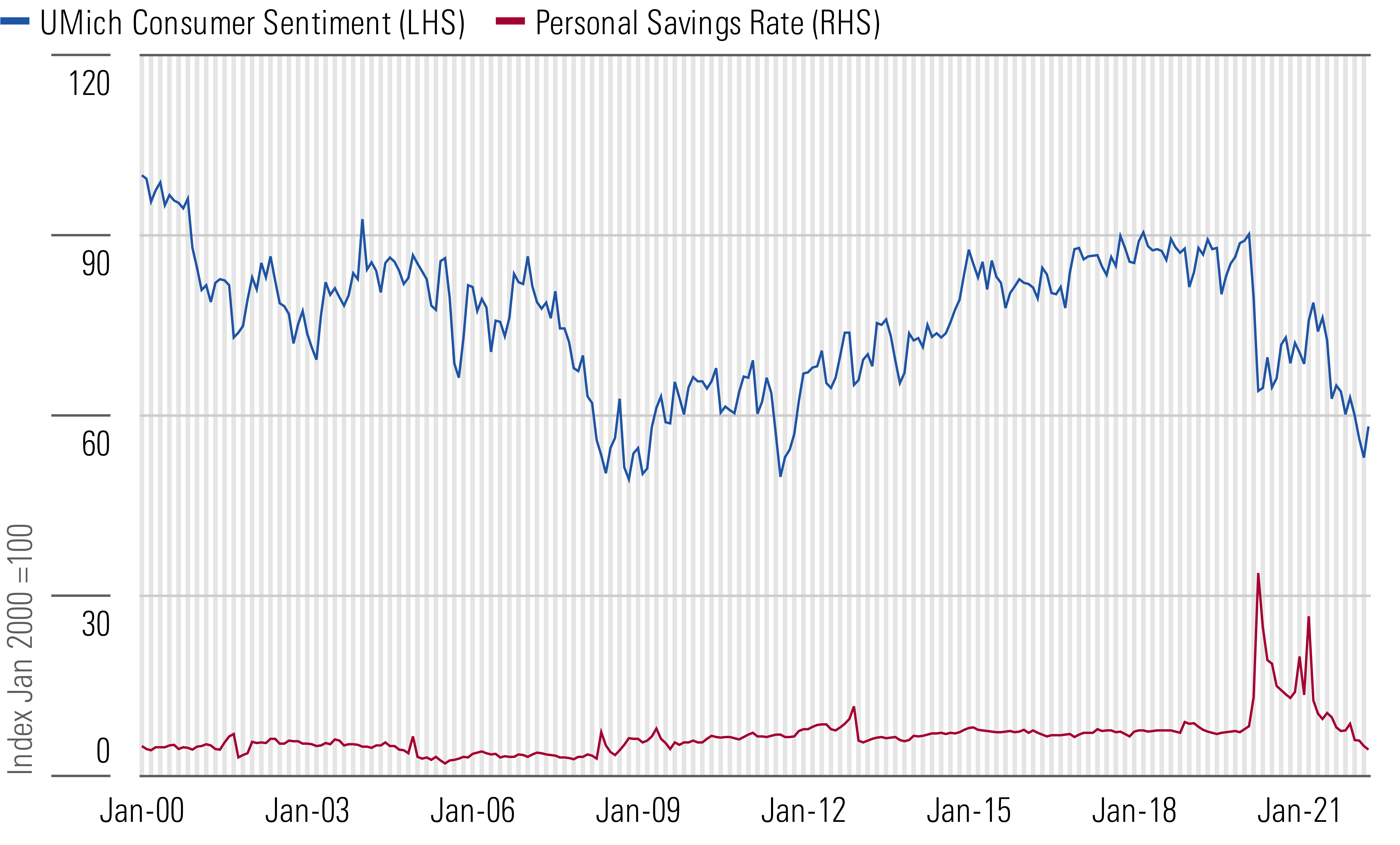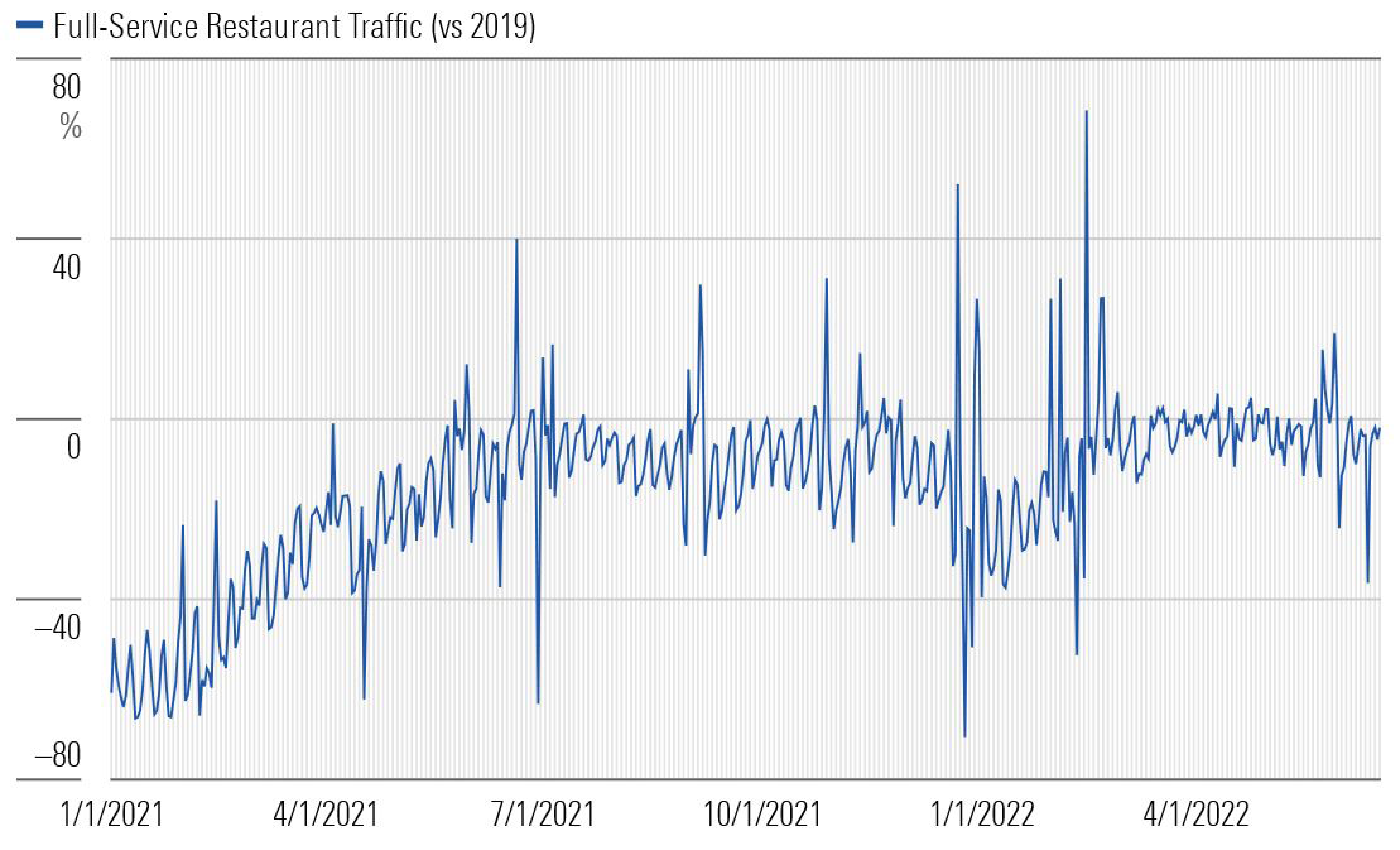Fear of a Spending Pullback Sinks Consumer Cyclical Stocks, But Opportunities Exist
There's still plenty of pent-up demand for travel and leisure stocks; quick-service restaurants also look relatively attractive.
The consumer cyclical sector plummeted nearly 21% in the second quarter, faster than the U.S. equity market’s 14% slide, as of June 27. This relative underperformance is more pronounced on a trailing 12-month basis, with sector prices falling 21.1%, over 1,000 basis points below the approximate 11% decline of the broader U.S. market.
Consumer Cyclical Noticeably Underperformed the Market
US equity and US consumer Cyclical grapgh

- Source: FRED, OpenTable, Morningstar. Data as of June 14, 2022.
We surmise the rash downdraft in the sector has been prompted by the belief that consumers will curb discretionary spending because of rampant inflation. This has manifest in the median consumer cyclical stock trading at a 29% discount to our fair value estimates, with around 77% of stocks in our sector coverage trading in 4- or 5-star territory. In this context, we continue to view travel and leisure stocks as among the most undervalued, trading at a 35% discount to our intrinsic valuation.
Each Consumer Cyclical Segment Now Offers Opportunities
Bar chart Ratings

- Source: FRED, OpenTable, Morningstar. Data as of June 14, 2022.
The ramification of such pronounced inflation (at a 40-year high) has been a rapid decline in consumer confidence, with the index on its way to reaching its lowest level in more than a decade. Similarly, the personal savings rate, which was boosted by government stimulus and reduced spending during the pandemic, has since fallen dramatically to 4.4% in April 2022 from a 33.8% peak two years ago. With the recent interest-rate hikes, we suspect overall demand is likely to moderate across a diverse array of discretionary goods and services, as the Federal Reserve attempts to temper inflation.
On top of retail sales starting to show signs of cracking, these quantitative trends indicate plunging optimism that we think may persist in the near term. Nonetheless, we do not expect the travel industry to come under pressure immediately, as pent-up demand incites continued growth in the category.
Inflation Triggered a Vast Decline in Consumer Confidence and Savings
UMich Comsumer Sentiment and personal saving rate graph

- Source: FRED, OpenTable, Morningstar. Data as of June 14, 2022.
Even though easing mobility restrictions and higher vaccination rates encouraged consumers to venture outside the home for food consumption, the more recent rise in costs, especially gas prices, has prompted some consumers to resort back to at-home meals. We expect cash-constrained consumers to favor value-oriented concepts should they cut back on restaurant expenditures, leaving our quick-service coverage looking relatively attractive.
While true fine dining restaurants are somewhat recession resistant because of their affluent clientele (similar to the personal luxury space), upscale casual and midprice full-service restaurants will likely struggle, at least on a relative basis, against the current backdrop.
The Restaurant Industry Recovery May Stall
Full service restaurant traffic graph

- Source: FRED, OpenTable, Morningstar. Data as of June 14, 2022.
Top Picks
Hanesbrands HBI Star Rating: ★★★★★ Economic Moat Rating: Narrow Fair Value Estimate: $26 Fair Value Uncertainty: Medium
We believe narrow-moat Hanesbrands, currently trading at a 61% discount to our $26 per share fair value estimate, offers a good opportunity for investors. Although higher costs, freight delays, and unfavorable currency movements are expected to affect near-term profitability, we remain confident in the company's long-term strategic plan, Full Potential. We view the plan favorably, particularly its emphasis on widening the athleisure brand Champion, and we think the firm is in capable hands under former Walmart executive Steve Bratspies, who took over as Hanes' CEO in August 2020.
Bath & Body Works BBWI Star Rating: ★★★★★ Economic Moat Rating: Narrow Fair Value Estimate: $86 Fair Value Uncertainty: Medium
Narrow-moat Bath & Body Works is attractive, trading at around a 65% discount to our $86 fair value estimate. We contend that the market is fixating on transitory profit pressures and rising recessionary concerns. However, despite an economic slowdown, Bath & Body Works should remain relevant, offering affordable products that support demand. With its operational agility, we think continued growth in line with the business should lead to share gains both at home and abroad. Outside its home turf, we see opportunities through digital and physical store channels that should support the brand intangible asset on a global scale.
The RealReal REAL Star Rating: ★★★★★ Economic Moat Rating: None Fair Value Estimate: $13.30 Fair Value Uncertainty: High
After a harsh selloff due to profitability concerns, no-moat RealReal trades at a 79% discount to our $13.30 fair value estimate. However, a strategic pivot is well underway, and we anticipate a route to adjusted EBITDA profitability by 2024. While the RealReal is already the largest luxury resale platform in the U.S., we see further share gain opportunities due to increased acceptance of used apparel and online luxury purchases, a consignment business model that favors consolidation, and a soft competitive set in offline thrift stores and pawn shops. Despite an abrupt CEO departure, we expect the strategic playbook to stay intact.

/s3.amazonaws.com/arc-authors/morningstar/c612f59b-89e0-422a-8f71-3eb1300d1a2c.jpg)
/cloudfront-us-east-1.images.arcpublishing.com/morningstar/VUWQI723Q5E43P5QRTRHGLJ7TI.png)
/cloudfront-us-east-1.images.arcpublishing.com/morningstar/UUSODIGU4REULCOR35PTDS7HW4.jpg)
/cloudfront-us-east-1.images.arcpublishing.com/morningstar/HBAEAVIJHFEBTPMEK2UMVQ3NFQ.png)
:quality(80)/s3.amazonaws.com/arc-authors/morningstar/c612f59b-89e0-422a-8f71-3eb1300d1a2c.jpg)